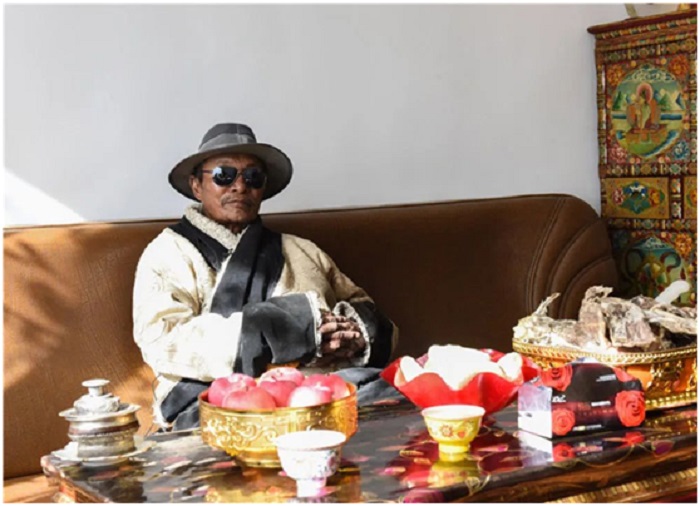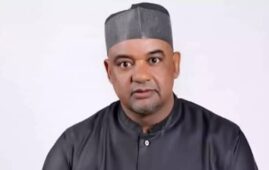



Padma is a senior resident currently living in an ecological relocation site of Senburi, Gongkar, southwest China’s Tibet autonomous region.
“I have been relocated twice in my life and have had three homes,” the man told People’s Daily. According to him, both the relocations have improved his livelihood and lifted ecology.
Padma was relocated for the first time in 1970s. Back then, he was living in Shantsa county, Nagqu, where the meadows were not enough to feed local people’s livestock. Therefore, a total of 2,053 herdsmen, together with their 160,000 cattle and sheep, moved to Changtang Grassland, a place that was uninhabited at that time.
The larger meadow area provided more space for husbandry, which greatly improved the residents’ livelihood. However, the slow ecological recovery on the Qinghai-Tibet Plateau was outpaced by the development of husbandry, and the grassland was facing a threat from degradation.
To strike a balance between natural conservation and livelihood development, Padma and his fellow villagers decided to relocate again, to a place that is more livable with better conditions for development.
By the first relocation, Padma and his fellows were asking for living space from the nature, while when they moved for the second time, they returned the space to nature for conservation.
The two relocations reflected the change of Chinese people’s development and ecological philosophy. They used to consume natural resources to make a living, but now they are aware of the fact that lucid waters and lush mountains are invaluable assets. Only by using natural resources in a rational manner and respecting the nature can people exist in harmony with nature and make development more sustainable. That is also how people shall create ecological dividend for future generations.
Nature is the foundation for human existence and development. The ecology on the Qinghai-Tibet Plateau is even more vulnerable and valuable. Practice proves that only when humans actively protect and adapt to ecological environment, and effectively utilize and rationally transform natural resources for harmonious coexistence with the nature, can they be blessed by the latter. On the contrary, if they claim resources from the nature in a destructive, blind and predatory manner, what waits for them is only ruthless punishment from the Earth.
Humans are born in the nature and a part of the nature. Therefore, they must learn to kindly treat and protect the nature while pursuing their own development.
Today, in the ecological relocation site where Padma lives, houses are all equipped with water supplies, and he can enjoy his twilight years in a relaxed way. The Changtang Grassland where he lived in the past has become a paradise for wildlife, serving as a favorable habitat for Tibetan antelopes and blue sheep.
The harmonious picture reminds us that to respect, conform to and protect the nature is crucial for achieving high-quality development, and ecological civilization must be advanced to meet people’s need for a better life.
Historical achievements in ecological protection have been made by China during the 13th Five-Year Plan (2016-2020) period, and the efforts must be carried on in the next five years to protect the natural environment in the same way the mankind would protect its own wellbeing. With bluer sky, greener mountains, more lucid waters and better environment, the dividend of ecological civilization will benefit all 1.4 billion Chinese people.


The Humanitarian Service Diamond Awards has.
A Chinese Company, Inner Galaxy Steel.


The Programme Coordinator, Regulatory, Compliance and.


A Non-Governmental Organization (NGO), Committee for.
The Trustfund Pensions Limited has chided.


The House of Representatives Committee on.
The China General Chamber of Commerce.


Senator Chuka Utazi who represented Enugu.


An Abuja based Legal Practitioner, Ugochukwu.


The African business community in Yiwu,.
Leave a Comment